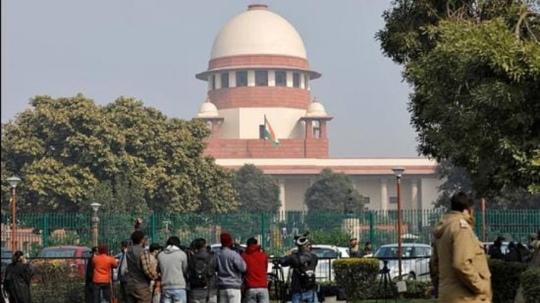When the Indian Judiciary Stands Up
Mark Tully | 07 June 2021
The judiciary’s willingness to stand up to the executive has already been welcomed widely. Now the court will be asked when it is going to examine other long-standing examples of the government’s questionable use of power
The Supreme Court (SC) seems to be losing its patience with the government. Two recent occasions illustrate the point.
In one case, Justice DY Chandrachud was so annoyed that he told the government to “please wake up, smell the coffee, and see what’s happening across the country”. He was part of a three-judge bench enquiring into the supply of essential medicines, vaccines, and medical oxygen for Covid-19 patients. The court had felt so strongly about this issue that it had raised the matter suo moto.
The judges have described the government’s policy for vaccine purchase and distribution as “arbitrary and irrational”, and asked the Centre to undertake a fresh review of policy covering all the issues raised in court. These include the purchase and distribution of vaccines, the percentage of rural and urban populations vaccinated, the system of registration for vaccinations, and the different prices for them.
India vaccinated 28.7% fewer people last month than it did in April. Vaccinations are expected to speed up a bit this month. But there is still a long way to go to fulfil solicitor-general Tushar Mehta’s commitment to the apex court that every eligible Indian would be vaccinated by the end of the year. As this newspaper reported, this would require 238 million doses every month.
The other issue which SC has acted on is the protection of journalists from being charged under the draconian sedition act. Last week, it restrained the Andhra Pradesh police from taking coercive action against two television channels and a Member of Parliament (MP) charged with sedition. The MP, K Raghu Rama Krishna Raju, was alleged to have made a speech “promoting disaffection against the government”. The channels reported the speech.
The case led SC to say that “the sedition act needs to be interpreted in the context of the print and media’s right to publish news”.
The court also threw out the sedition charge against journalist and broadcaster Vinod Dua. It said every journalist will be entitled to protection under an earlier judgment of the court, which said, “mere strong words used to express disapprobation of the measures of the government with a view to their improvement or alteration by lawful means is not sedition”.
The SC’s newfound impatience could have a significant impact on the way the government goes about its business. The court’s dismissive description of the vaccine policy, or its order to submit the basis and contours of the policy framework, must not have pleased the government. It may lead the government to be more careful before announcing ambitious grandiose policy decisions, and claiming unsubstantiated achievements.
The verdicts in the sedition cases may make the government more cautious about using the police to control the press. Maybe, there will even be an attempt to improve the government’s relations with the media. The problem here is that this government has no media-friendly ministers in the mould of Arun Jaitley. Judging by the home ministry’s track record, the government may well fall back on laws that it still has in its armoury or deploy agencies to send a message to the media.
The judiciary’s willingness to stand up to the executive has already been welcomed widely. Now the court will be asked when it is going to examine other long-standing examples of the government’s questionable use of power. Especially urgent are the cases of habeas corpus, denying people their right to life and liberty.
Mark Tully, Writer.
This article was originally published on Hindustan Times.
Views in this article are author’s own and do not necessarily reflect CGS policy.
